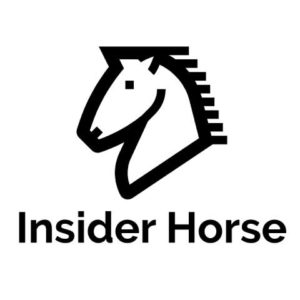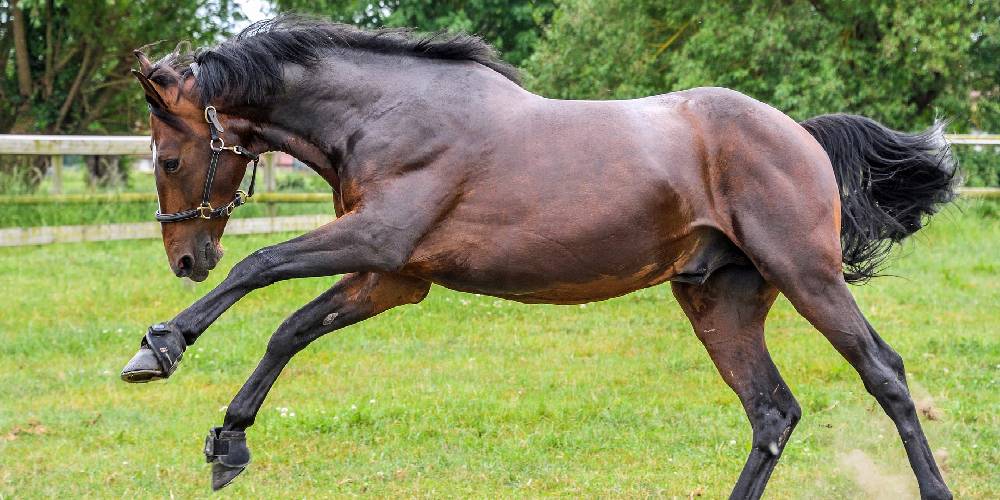Getting a horse of your own is a huge step! Don’t get me wrong, it is super fun and exciting, but there are several things you should know before diving headfirst into owning a horse. Because there is so much work that needs to be done every day, sometimes owning your own horse is not the best option. Taking on the responsibility of this beautiful animal can be too much for some people so knowing what to expect before getting a horse of your own is crucial.
1. Don’t Just Go Out & Buy A Horse!!!
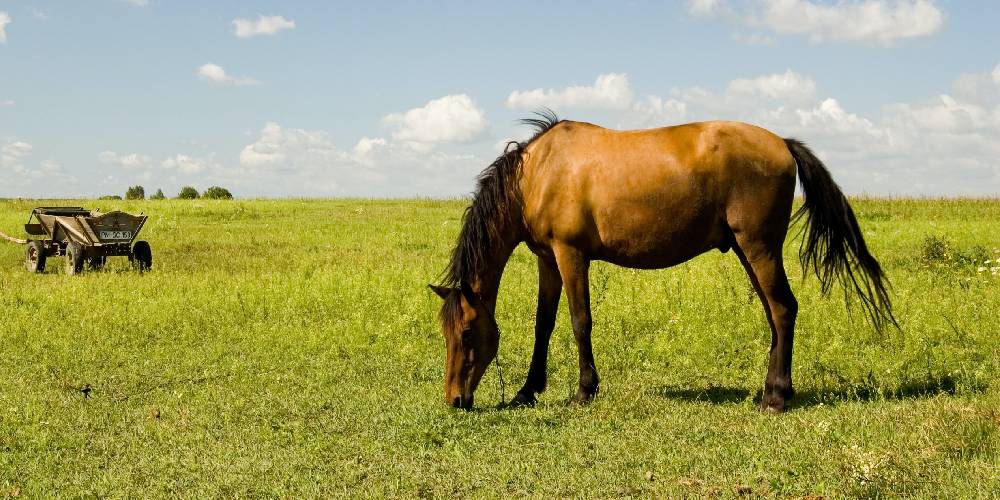
Every horse is different and just because the ancient horse you rode on a trail ride was super mellow and kind, not every single horse will be this way. Horses have personalities just like people do so finding a horse with a personality and temperament that you can handle is crucial.
These are some things to keep in mind:
- Find a horse with a calm and easy going demeaner, ESPECIALLY if you are a beginner rider and/or if this will be your first horse
- Have the horse examined by a veterinarian to rule out any lameness or health issues the horse might have that you didn’t know about
- Make sure you meet the horse and spend some time with it before you buy it! Having an idea of the behavior of your horse is important so you don’t get an unwelcome surprise at home
- If you are buying your first horse, rule out any horses whose advertisements say the words “spirited,” “barrel prospect,” “endurance prospect,” “fresh off the track,” etc.
Knowing which advertisements to rule out is important so you aren’t shopping for or looking at horses that are going to be too much for you to handle.
The reason I recommend staying away from horses who are described as prospects is that this word basically means that this specific horse is not fully trained or is not ready to compete in whatever it is advertised for. If you are shopping for your first horse and aren’t looking for a horse you need to train, I don’t recommend going the prospect route. These horses will find different homes where an experienced rider or trainer will take them on and finish their training.
Meeting the horse is crucial or else you have no idea what you are getting yourself into! A horse may be advertised as a beginner safe or kid-friendly horse, but you will never know whether or not this is true unless you go meet the horse and test ride it yourself.
2. Don’t Focus On The Horse’s Breed
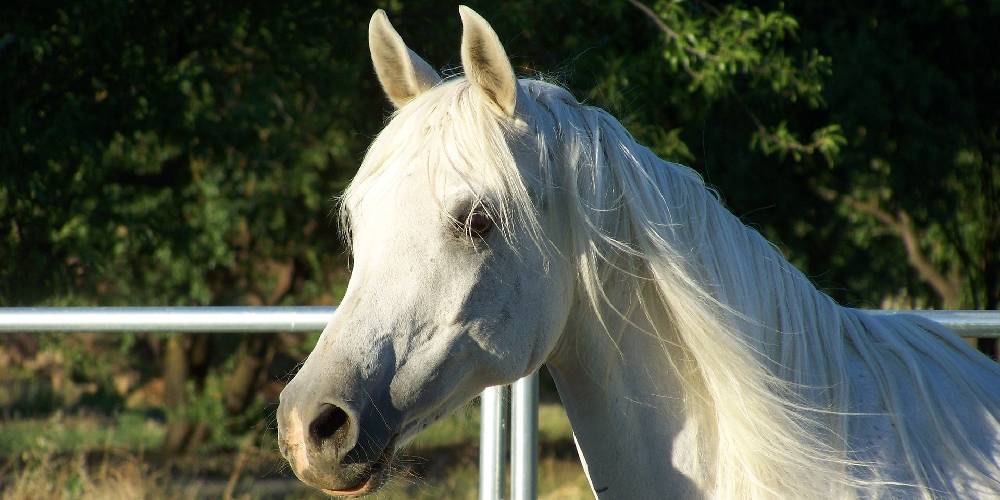
Yes, I know that some horse breeds are known to be a little spicier than others so to keep an eye out for ‘hotter’ breeds might be a good idea, but overall the breed isn’t truly what matters.
If you go out and meet the horse and they are calm, mellow, relaxed, and easy-going, then there is no reason why you shouldn’t get that horse because it is or isn’t a specific breed.
If you are reading an advertisement for a horse and the breed of the horse is known to be problematic, just keep reading the advertisement! There are special exceptions for every breed and not all horses of a certain breed are going to be like the rest of them.
Some breeds to be cautious about:
- Arabians (can be hot tempered)
- Thoroughbreds (can be hot tempered, skittish, and fast)
- Appaloosas (known to be temperamental and sometimes mean)
- Akhal Tekes (hot tempered and best suited for more experienced horsemen)
- Barbs (can be temperamental and fast)
Just because these horses are on this list doesn’t mean that they are all bad horses! The Arabians that I have had in the past have all been so sweet and kind and one of them was the most kid-safe horse I have ever owned! A Thoroughbred named Harvey at a barn I work at is probably the most mellow lesson horse the barn owns! Don’t judge a horse by its breed!
The only time I believe that you should look for a specific breed is if you are looking to do a certain style of riding or stay in a specific breed industry. For example, I would not get a grade Quarter Horse if you ride saddle seat just because the horse was nice. Don’t forget what you are wanting to get out of a horse as well!
3. Don’t Get A Stallion!!!
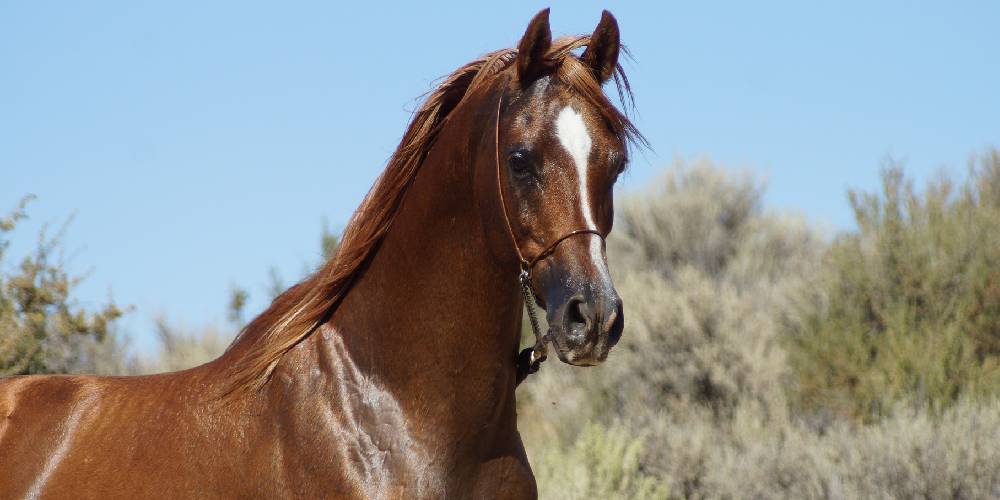
The only time I would EVER consider getting a stallion is if you are an advanced rider, trainer, or breeder who is looking for a stud to add to their breeding herd. There should be NO other reason why you are getting a stallion.
Why shouldn’t I get a stallion though? Here are some reasons to never get a stallion, ESPECIALLY for your first horse:
- Stallions are unpredictable
- They are driven by hormones
- Mares are definitely their weakness (if they want to get to her they will fight until they are with her)
- They are super unpredictable
- Most stallions are dangerous to be around
- They are extremely temperamental
- They can be very hard to train (they are wired into thinking they own the world)
- Some stallions are even difficult for experienced riders, trainers, and handlers to deal with
4. Watch Out For Any Listed Illness Or Lameness!
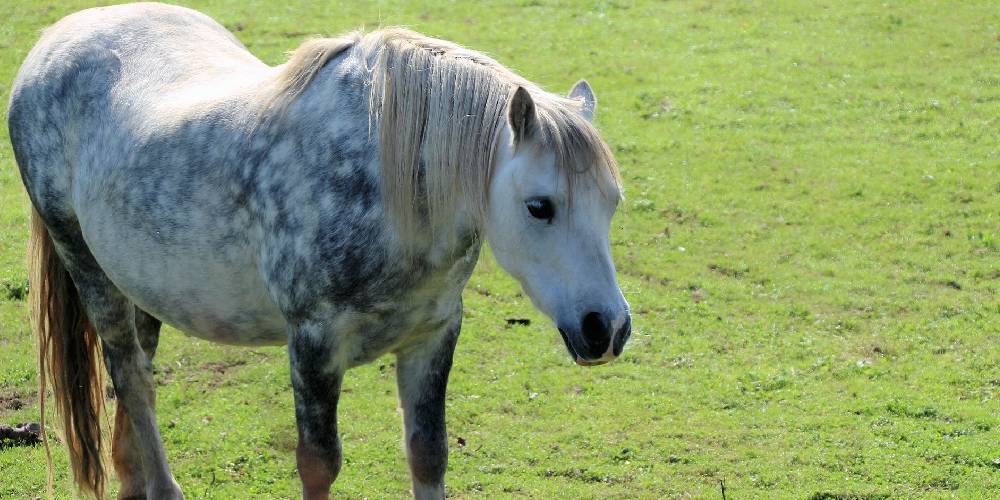
A horse who is listed for sale with a small case of this or a mild case of that is a no-go. Why would you purchase a horse with issues when you could purchase a horse that is healthy? Some words you need to keep an eye out for are:
- Founder
- Laminitis
- Cushing’s disease
- Shivers
- Arthritis
- Ring bone
- Ulcers
- Chronic Colic
- Lymphoma
- Back Issues of ANY kind
There are so many issues that are seen in horses, so these are the most common that I have seen listed on horse advertisements.
If a horse you are looking at buying has any of these issues, I would stay away. These horses often have progressive conditions that just get worse with time. Because of this, I would go with a horse that is healthy and free of any issues.
5. Don’t Get A Super Young Horse
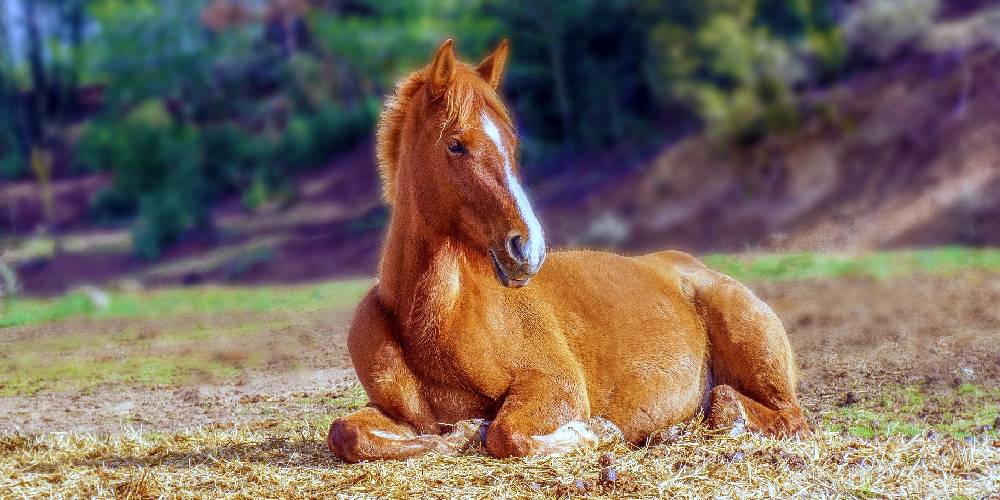
If you are looking at getting a horse, especially for a first horse, I would not recommend getting a young horse. This is because young horses don’t have much life experience and they often require more training, more work, lots of desensitizing, and more effort put in on your end than what is necessary.
Just because I am telling you not to get a very young horse does not mean that all young horses are bad or that you can’t go get one. I rode my friend’s Quarter Horse mare when she was just five years old and I had no problems at all!
The main reason I recommend not getting a very young horse because of the way most young horses are.
I believe that a horse between the ages of 8 and 18 would be a great fit for anyone as it is likely that these horses are fully trained, less skittish, calmer, and more easy-going overall.
6. Don’t Buy A Horse Just Because It Is A Certain Breed, Color, Or Height!!!
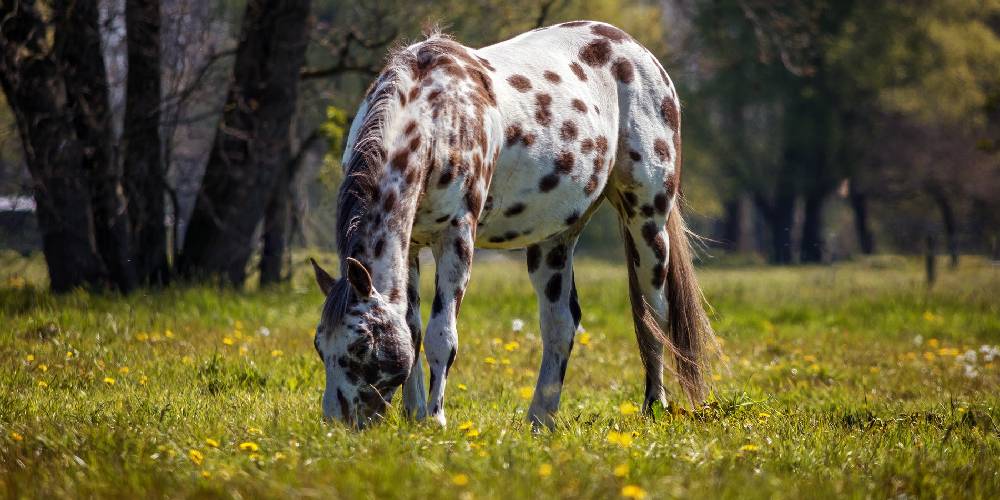
At the end of the day, you are going to want a happy healthy horse who is kind to you and is easy to get along with. Yes, if your horse has a gorgeous coat pattern, or it is super tall, or your horse is a really unique breed, it might be fun to show off or to look at, but if that horse has a horrible temperament you may begin to regret your choices.
I have always wanted a big horse. I think it would be so fun to gallop around on a horse that is at least 17 hands high because being up so high on a powerful animal would be the best thing in the world. For those of you who know me however, you might know that the tallest horse that I have ever owned is the horse I have right now. His name is Cisco and he is only 15.1 hands high! Obviously I would prefer a taller horse, but because he was so sweet, mellow, healthy, well built, and easy going, I bought him over another taller horse I was looking at.
Sometimes we need to set our preferences aside and just go with what is going to be good for us. Cisco is exactly what I need in a horse right now and even though he is a little shorter than what I originally wanted, I can guarantee I will never regret my purchase of him.
7. Watch Out For Scams & False Identifications!
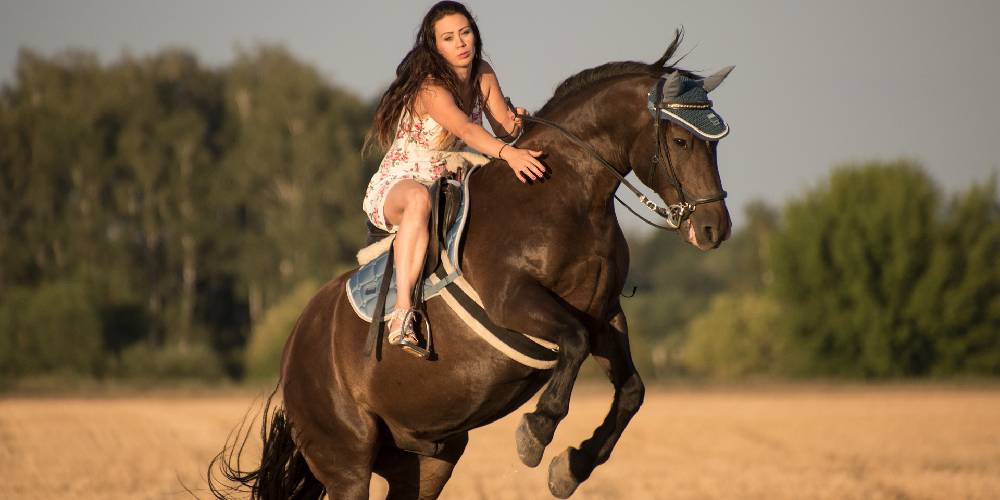
Sometimes, sellers will falsely advertise their horses to make a quick sale so you need to keep an eye out for these situations! To prevent yourself buying a horse that is not what it seems, I recommend doing the following:
- Test ride the horse (you need to see how they are under saddle!)
- Ask a TON of questions! (you can detect lies fairly easily if the story the seller tells isn’t consistent)
- Have a veterrinarian come out and look at the horse! (The seller may tell you it’s a healthy horse, but a veterinarian can prove to you and tell you for sure whether or not there is anything wrong with the horse)
- Have an experienced horse person come with you and get their opinion (if you bring someone unbiased with you, you will be able to hear their opinion of the horse and see if there is anything you are overlooking)
Sellers, to get a quick sale may advertise their horse as ‘kid safe’ or give them a false age to make them more appealing to a buyer. Having a veterinarian come out and look at the horse’s teeth to tell the horse’s age or an experienced horse person come handle the horse can really help to see how accurate the advertisement is!
My Experience With False Advertisements
When I was looking to buy a horse before I found Cisco, I saw an advertisment for a registered Quarter Horse gelding that was advertised as a ‘great addition to any lesson program.’ I though to myself, “if he would be a good loesson horse, then he would be great for what I need in a horse right now!”
When I got out to the facility, There was so much I learned and realized that the seller didn’t tell me. This 16 year old gelding was just freshly gelded a few years before she got him meaning he was still full of that stallion testosterone. Not only this, but he was in a neglect situation before the seller got him so he had a lot of anxiety.
Another thing I leaned was that I was his only rider other than the seller in the last three years that she had him! I walked away from this horse even though the price for him was definitely worth it because not only did they falsely advertise this horse, but the horse would not have worked for the riding lessons I was going to use him for.
8. It Is Okay To Say No & Pass On A Horse
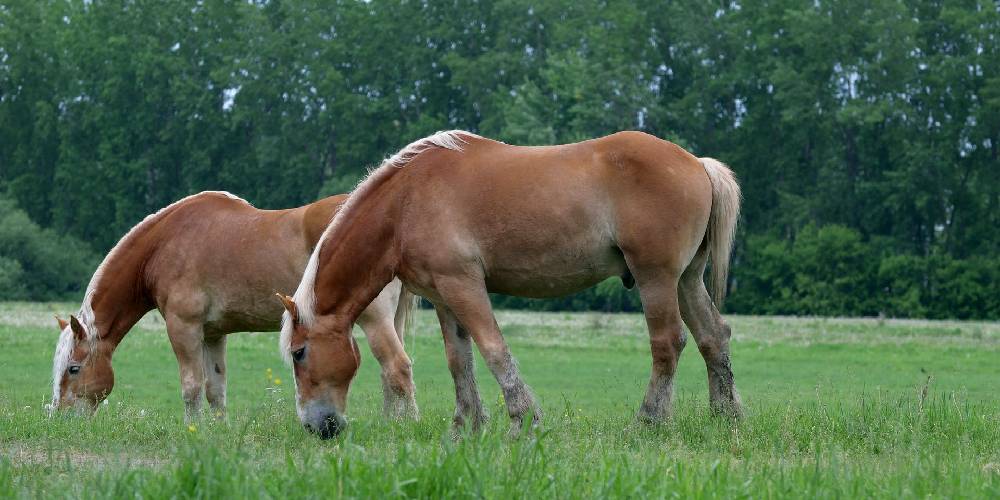
Just because you go out to meet someone to look at their horse does not mean that you are obligated to buy the horse or to help them find a home for it. It is okay to say no! You don’t need to buy the horse if you don’t want to and finding a home for the horse is not your responsibility!
Sometimes sellers will try to make you feel rushed to buy a horse by telling you that someone else is very interested in the horse or by trying to guilt you into purchasing the horse from them. Telling these people no is 100% okay!
Make sure to never get rushed into buying a horse! Horses are a long term commitment and being rushed into a purchase is not a healthy thing to do at all.
9. Make Sure You Are Financially Capable Of Caring For A Horse
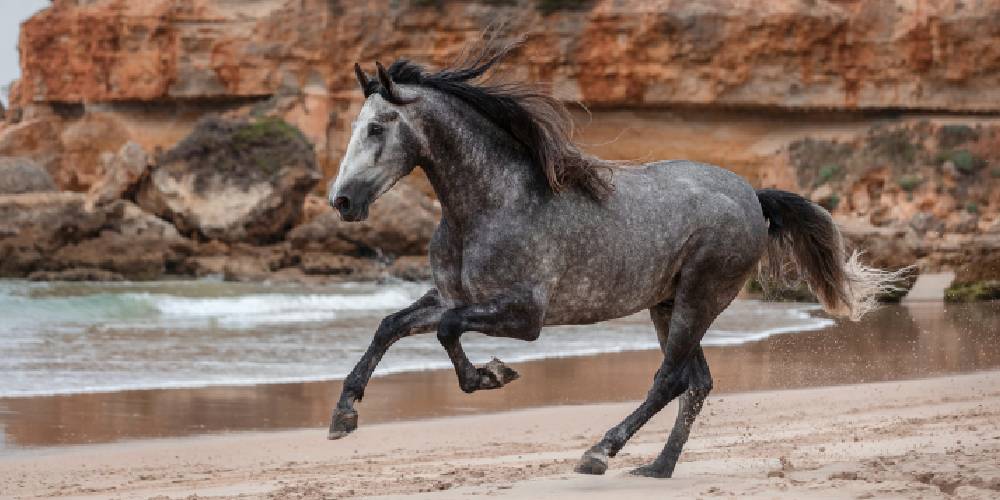
Horses are extremely expensive animals to own and care for. Not only do they cost a lot of money to feed, but they also require expensive farrier and veterinarian visits frequently to make sure the horse is in full health. Knowing the cost of all that you need to pay for and buy is important to make sure that you can in fact support and pay for your new friend. To give you an idea of how much a horse costs monthy, here is a breakdown of the cost of feed, board, and veterinarian costs in my area (Cave Creek, Arizona, USA):
| Expense: | Price: |
| Farrier Visit | $40-$80 monthly |
| Monthly Board At Barn/Facility | $400-$700 monthly |
| Hay | $80 monthly (at least) |
| Grain | $20-$30 monthly (depends) |
| Other Expenses (Fly Spray, Treats, Shampoo, Conditioner) | $30-$50 monthly (depends) |
As you can see, the monthly cost for a boarded horse in my area is anywhere from $570 to $940 (USD) based on my numbers! This means that you need to be able to comfortably cover these costs each month with enough left over to cover any vet bills or issues that come up with your horse!
Like I said, horses are expensive animals and knowing whether or not you can afford one is imprtant before you go through with a purchase.
(I happen to live in a very expensive area when it comes to horses and horse boarding, the average cost to keep a horse for one year is around $3,000 to $4,000 if you are not boarding them simewhere. If it is possible, keep the horse at your house rather than boarding them somewhere as it will be a thousand times cheaper)
10. You Need To Know How To Care For & Handle Horses!
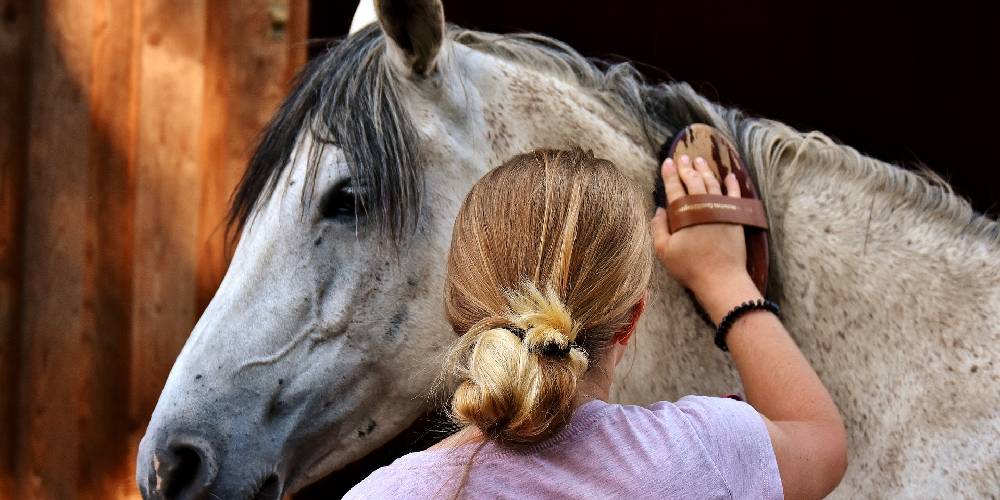
If you don’t know how to take care of a horse, how are you going to be able to keep your horse happy, healthy, and alive? Ask people around you for tips and pointers on how to take care of horses and maybe even volunteer at a barn to learn how to do all the basic horse care necessary to keep your horse happy and healthy!
Don’t be afraid to reach out to me either! I am happy to help you with any questions you might have when it comes to horse care, buying a horse, or even just horse questions in general! You can email me or DM me on Instagram and I will help you with any question you might have! my contact info is on the contact us page!
Do you still think you are ready to buy a horse?
